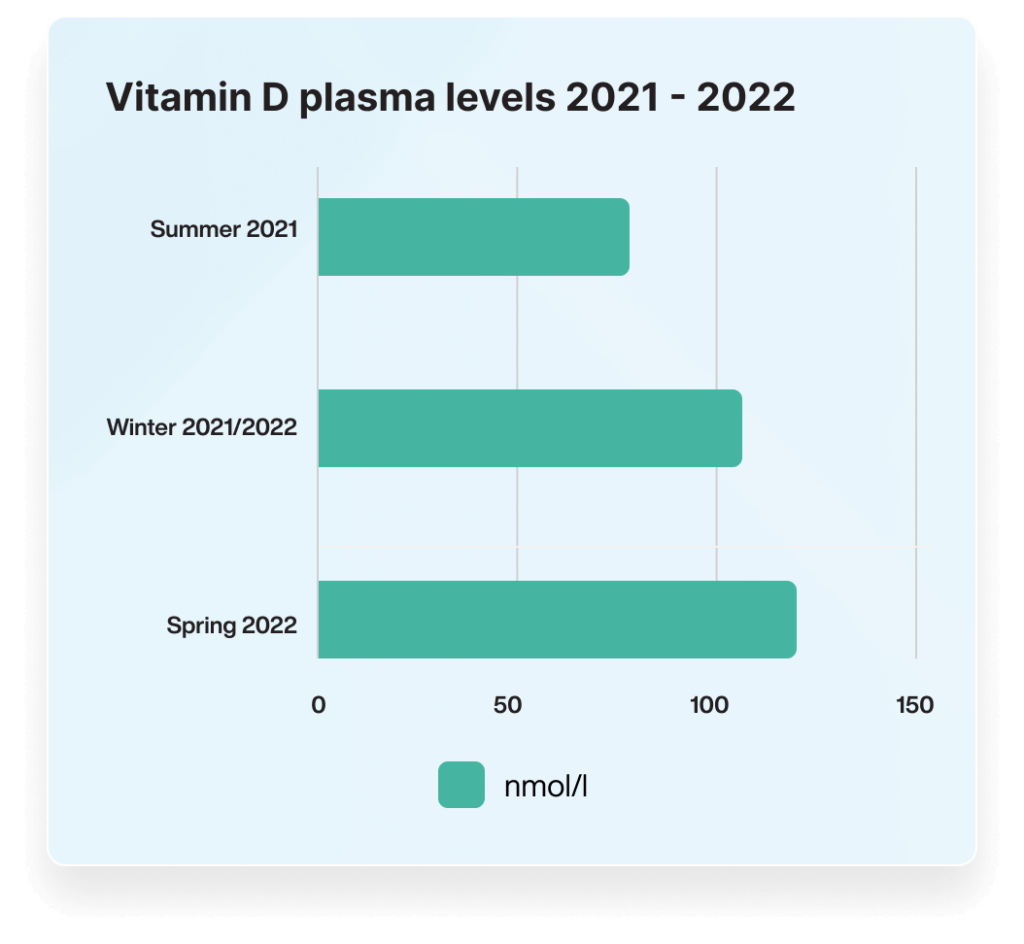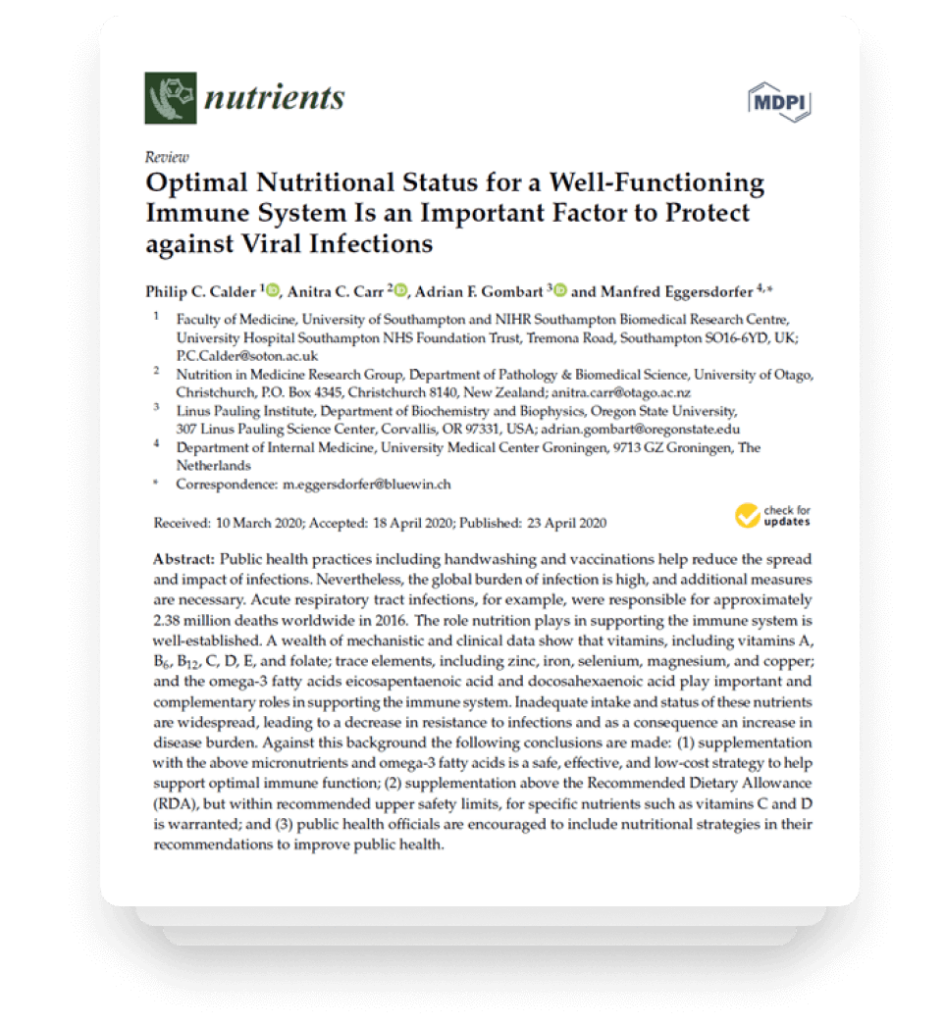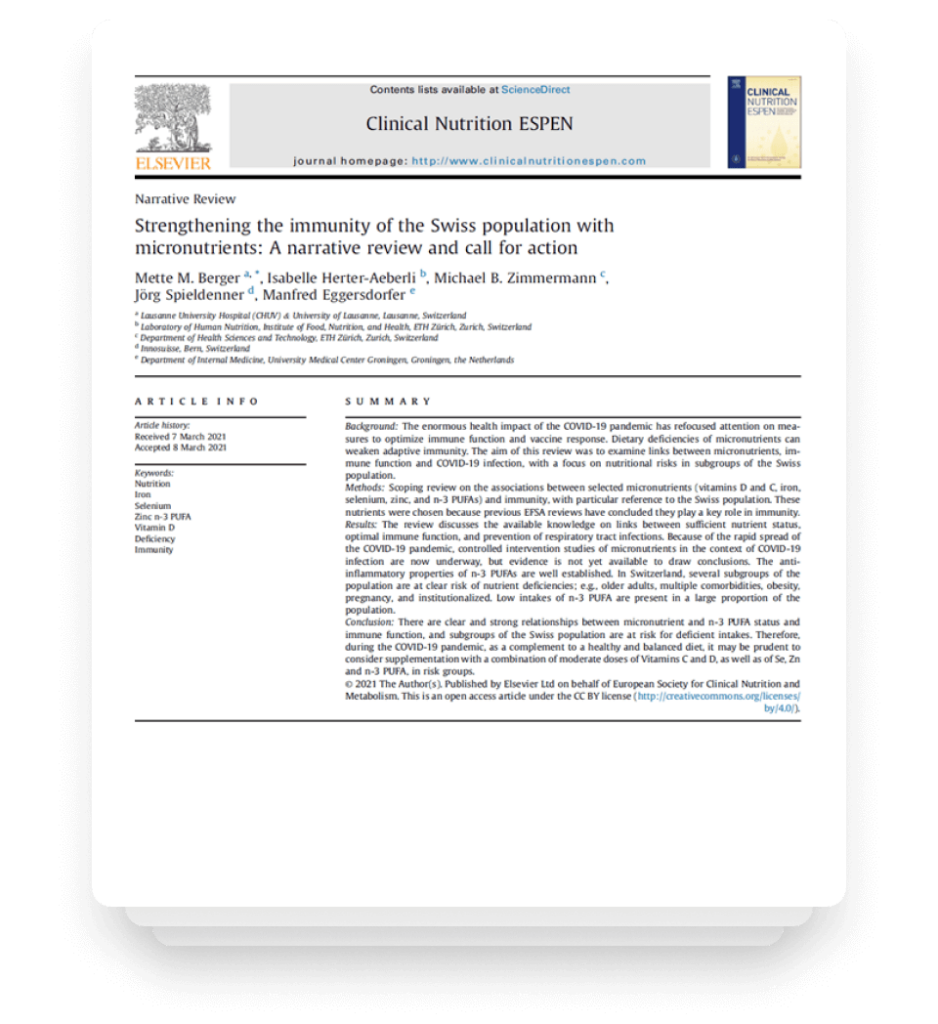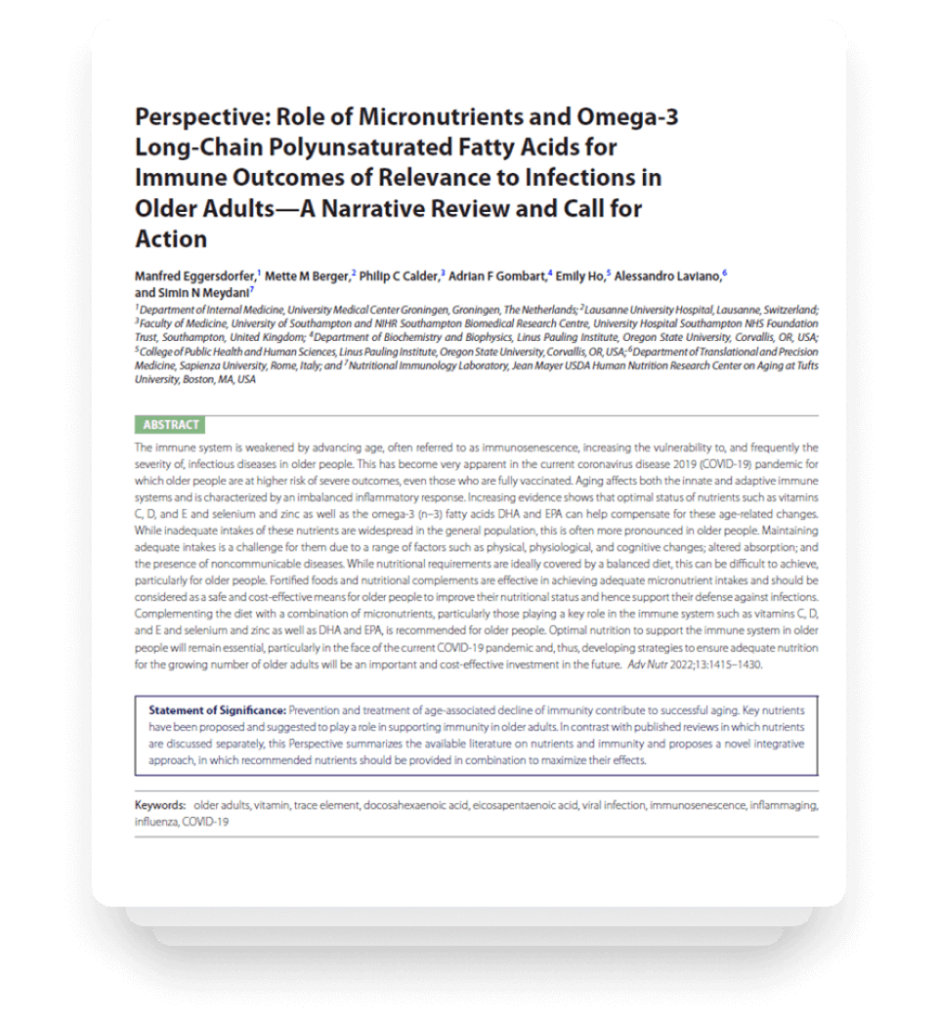
Prepared by Peter Van Dael, PhD (InnoNext Sarl), Prof. Manfred Eggersdorfer, PhD (InnoNext Sarl), Nate Matusheski, PhD (Hologram Sciences, Inc.)
In 2020, we set out to address workplace absenteeism and presenteeism and conducted our own scientific pilot called #Boostyourimmunity. During the 12-month period from 2020-2021, we tracked 200 employees, including office workers, lab technicians, and production workers. Participants received training and information on nutrition, exercise, mental well-being, and recovery, along with a personalized and complimentary supply of nutritional supplements containing vitamins C and D, zinc, and Omega 3. We assessed the pilot’s effectiveness through questionnaires on lifestyle and immune functioning as well as blood value measurements. The results were compelling: over 86% of participants reported positive and sustainable lifestyle changes, significant improvements in their blood vitamin values, and a 50% reduction in short-term sick leave compared to the norm. The pilot builds the foundations and enforces our motivation to provide holistic health opportunities for all.
To read more about the #Boostyourimmunity program and access the full report.
DOWNLOAD THE FULL REPORT
Sickness absence rates for pilot study participants were consistently lower (0.76%-2.11%) compared to the broader control employee pool (3.78%-4.84%) over the 12-month study period.
Vitamin D plasma levels significantly increased over the 12-month study, rising from an average of 69.4 nmol/L at baseline to 101.1 nmol/L by 12 months.
The percentage of participants with inadequate and suboptimal vitamin D levels dropped substantially, from 17% and 41% at baseline to 2.7% and 12% at 12 months, indicating the effectiveness of the supplements and high compliance.
Overall, most pilot study participants evaluated the vitality program #Boostyourimmunity very positively. The program supported the participants in making a positive behavioral change toward healthier lifestyles and nutrition, which most participants reported as sustainable. In addition, it concretely enabled most participants to reach an optimal vitamin D status, which is an important nutritional achievement that has also been associated with improved immune response and health outcomes related to upper respiratory tract infections.


Our approach is supported by the latest scientific advancements. A growing body of research underscores the importance of optimal nutritional status in enhancing immune function, a key element of our mission to promote healthy and productive work environments. A leading researcher within this field of research is Dr. Manfred Eggersdorfer, a pioneering expert who played a pivotal role in driving the investigation for the #boostyourimmunity pilot study. Together, The boostyourvitality program aims to translate this innovative field of research into actionable strategies, turning scientific insights into meaningful behavioral change in real-world settings. For further insights and detailed research, please explore the resources below.

A recent review highlighted the importance of micronutrients and optimal status for a well-functioning immune system. Both vitamin C and D and Omega-3 have important roles in innate, adaptive and inflammatory responses. The present research recommends micronutrient supplementation as a safe and effective method to reduce disease burden and increase immune fitness. This is coupled with the recommendation to implement more robust nutritional strategies to improve public health and reduce disease transmission.
DOWNLOAD THE FULL REPORT

This Scoping review underlies the associations between micronutrient intake and immunity across the Swiss population. It highlights key micronutrient deficiencies, including Vitamin C, D, Iron, Zinc and Omega-3. Recommendations and a call to action are to focus on the promotion of a well-balanced diet and long-term education and advocacy. There is a need to optimize nutritional guidance to increase dietary intake of essential micronutrients.
DOWNLOAD THE FULL REPORT

This Perspective article highlights the challenges posed by the COVID-19 pandemic on immune function in the elderly and underscores the need for targeted interventions to improve immune health in this vulnerable demographic. It discusses the role of micronutrient supplementation—particularly Omega-3, vitamins C and D, and zinc—in enhancing immune function. The article also explores the potential of emerging biological monitoring techniques to identify nutrient deficiencies and guide effective supplementation strategies, ensuring optimal nutritional status in older adults.
DOWNLOAD THE FULL REPORT